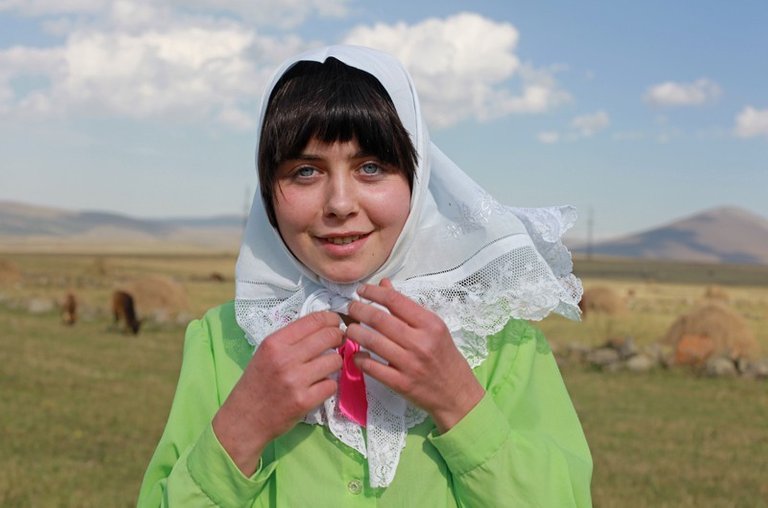
In my home country, in Georgia, there is a distant mountainous province with a very harsh climate. This province borders Armenia and Turkey and is located at an altitude of almost 2000 meters. Even the residents of Georgia themselves do not come here often, only some of my friends have been here. This region is called Samtskhe-Javakheti. This is the place chosen by the Russian tsar in the 19th century to exile the Doukhobors, a religious minority that broke away from the Russian Orthodox Church and refused to observe church rituals and recognize priests. The word doukhobor or dukhoborets can be translated as a 'spirit wrestler'. I think this word makes a good title)
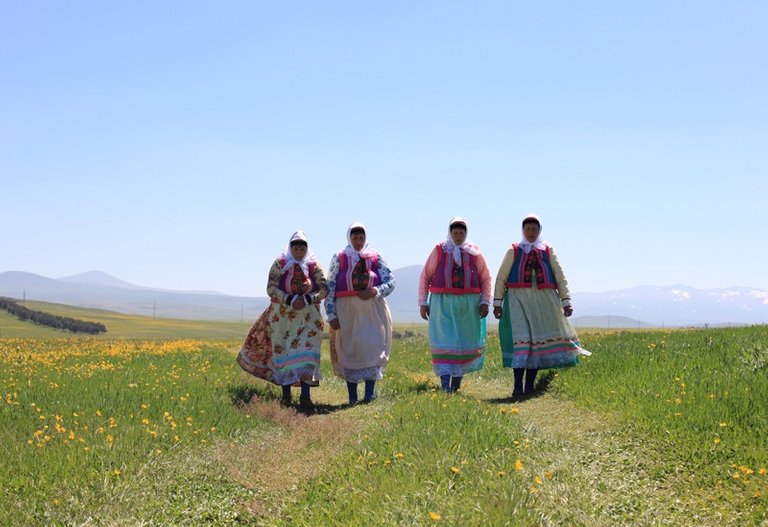
Group of Doukhobor women walking through the field near village of Gorelovka
For several years, together with my friends from the media production company GO Group Media, I worked on a documentary about the Doukhobors (I will paste a link to it at the bottom of this post). We came to Javakheti for a few days, sometimes once a month, sometimes once every two or three months, and managed to make friends with this small community. I took these photos on one of my trips, during the celebration of the Trinity.
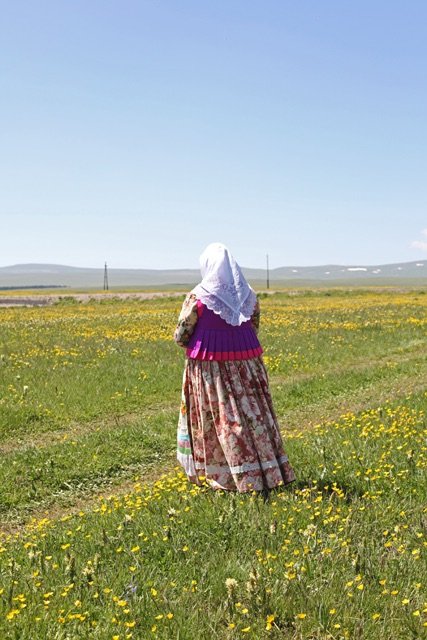
But let me tell you a bit about the history of the Doukhobors. On the one hand, the deportation to Javakheti was a punishment - it could be expected that most of the Dukhobors would not survive the journey. On the other hand, it was an attempt to populate empty lands along the border with Turkey.
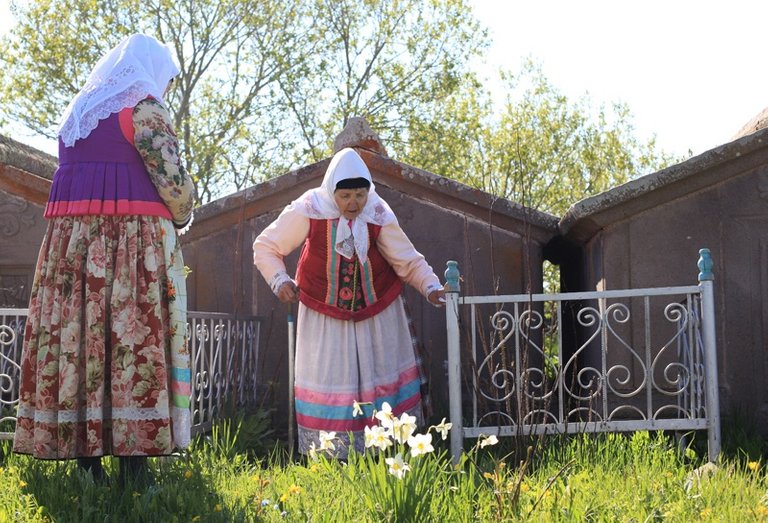
Women visiting saint graves Mogilochki near Gorelovka village
The strategy of tsarist Russia was justified - many Dukhobors really died on the way, others could not survive the first winter.
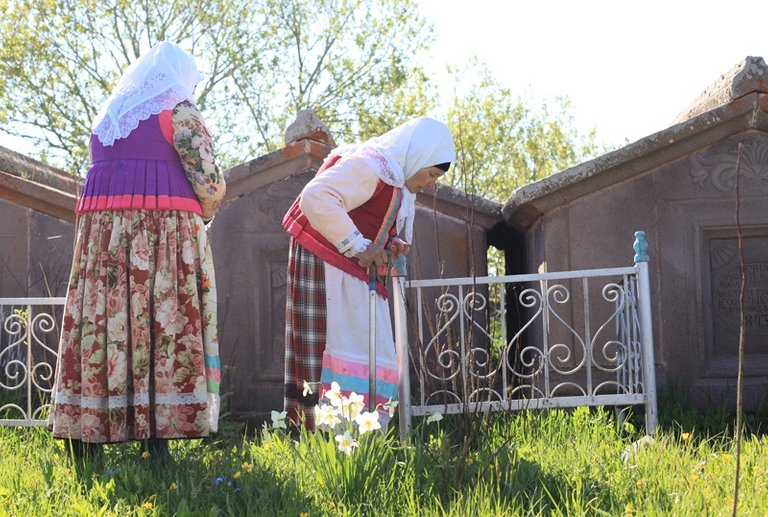
The Samtskhe-Javakheti region does not look like Georgia at all climate-wise: it is really harsh and the living conditions here are severe. In winter, the temperature drops to minus 25, and an icy wind blows from the mountains. There is no wood around, even today many locals
heat their homes with dung.
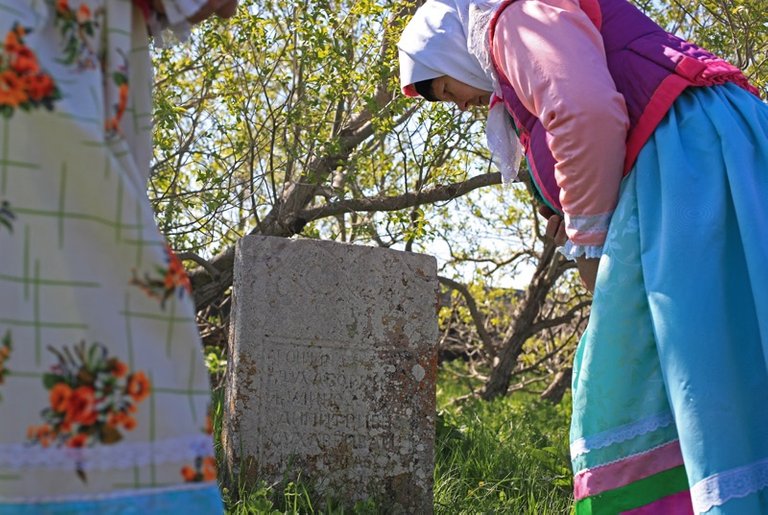
Doukhobors singing at Mogilochki on Saint Trinity holiday
The Doukhobors came here in late autumn, when it was already snowing. Exhausted by a hard road, the people had to dig dugouts to somehow escape the frost. I can't even imagine how they tried to keep warm.
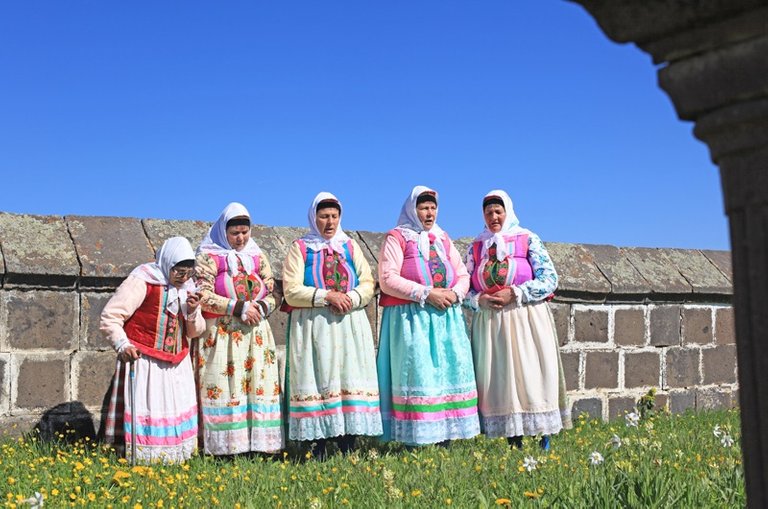
Some people managed to save their children, there were many families in which all the adults died, but the children survived. Having wintered, the survivors realized that they had a large number of children left in their arms and they decided to raise them together.
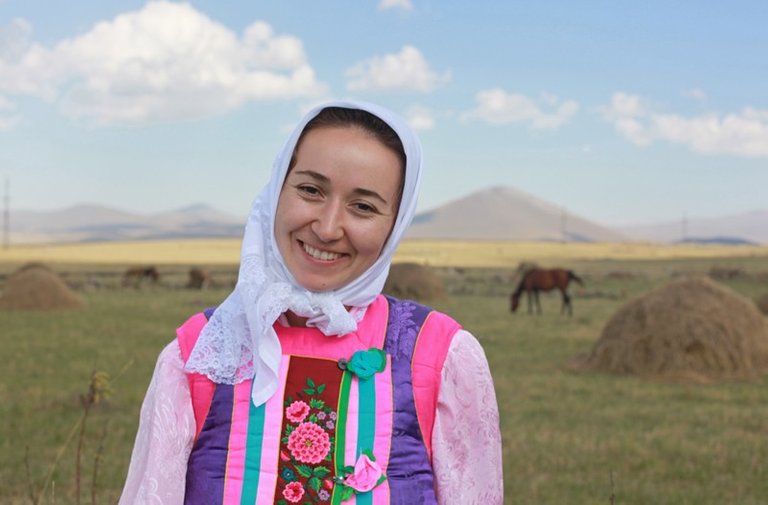
Tanya Markina, younger generation of Doukhobors. She left Georgia long time ago, but visits Gorelovka often
The Dukhobors founded several villages, the first was Gorelovka. One of the most significant buildings built soon after their arrival was the Orphanage - a kind of boarding school for the kids whose parents died The commune equally participated in raising the children. Doukhobors say that being brought up in the Orphanage was considered prestigious, graduates of this boarding school were considered good brides and grooms, because the commune knew that these children would receive a good education in the Orphanage.

Masha Sukhorukova, she also left Gorelovka a few years ago
Over time, the Orphanage turned into a spiritual center – on Sundays people come here for a common prayer. Doukhobors do not recognize icons and priests, but they consider regular prayer obligatory. Prayers are not written down, Doukhobors pass their prayers from mouth to mouth.
Doukhobor songs are also prayers, but not understandable to strangers. Even if you are fluent in Russian, you will not be able to understand a single word, because the text is encrypted in a special way.
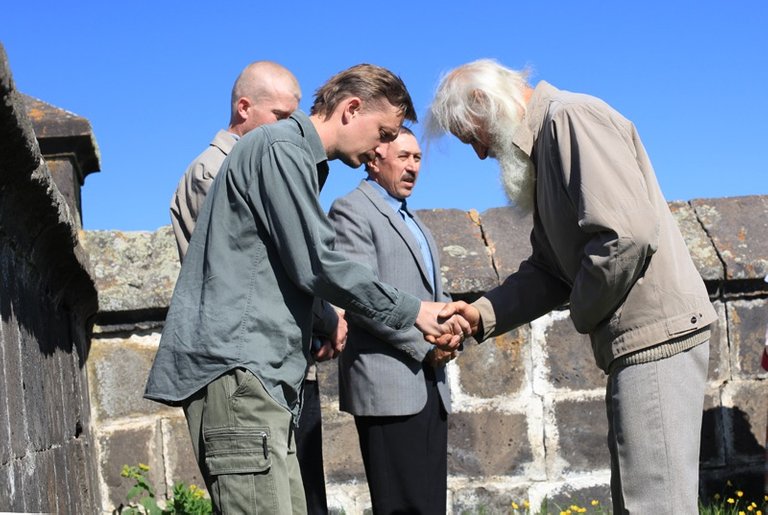
Part of religious ritual at Mogilochki
On holidays - just like in these photographs - the Dukhobors visit local shrines, Mogilochki, the graves of the leaders of the community and its other significant representatives, many of whom died and were buried in the first year of resettlement here, in 1835.
On holidays (and not only) Dukhobors are supposed to dress in bright clothes. In general, their traditions have a lot of brightness, joy, celebration and belief that the human spirit is strong and it will definitely defeat all bad things. In the video below a Doukhobor woman shows a vest she made for her husband. That vest he will be wearing... after his death. Doukhobors have a tradition of dressing up dead in bright handmade clothes, and each person needs to have this clothes prepared long before the death comes.
Another Doukhobor shrine is Peshcherochki, a cave near Gorelovka where the Doukhobors held their most famous protest in 1895 (unfortunately, no pictures from there for now). That was the uprising against the universal conscription that the Russian Empire introduced throughout the territory, including the colonies, which was Georgia as well. In protest against it, the Doukhobors, who consider themselves pacifists, gathered all their weapons and burned them. This could not remain without sanctions, the community was again harshly persecuted.
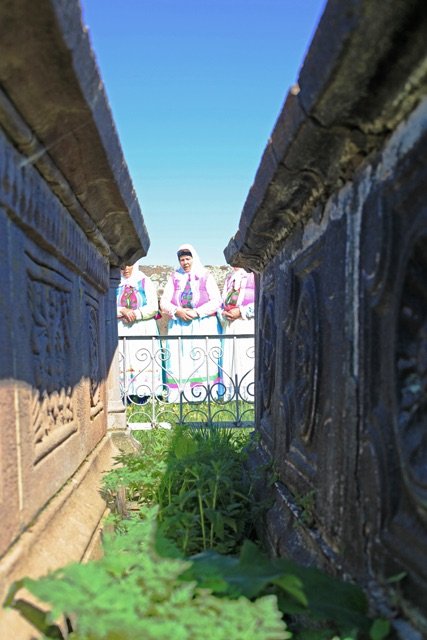
Soon after the action of burning weapons, a significant group of Doukhobors emigrated to Canada. Many still live there, I spoke to some of the Canada–based Doukhobors while working at the film.
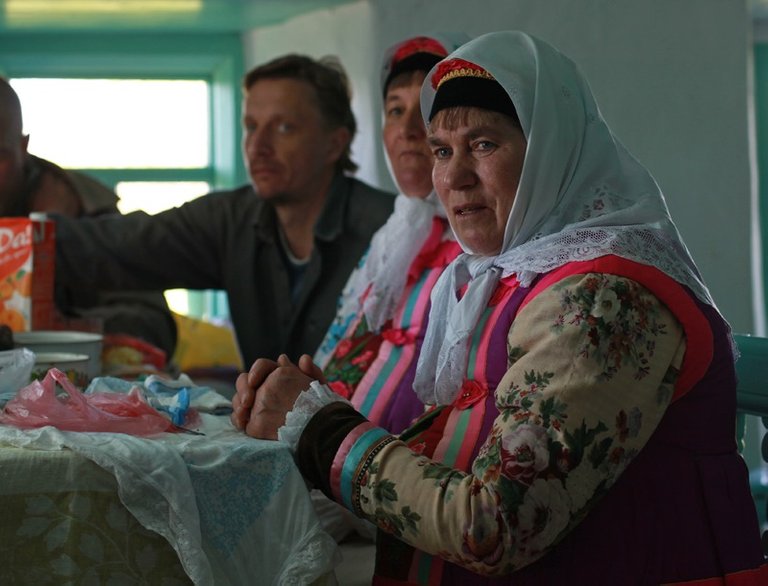
The Georgian Doukhobors faced real economic prosperity after the Sovietization of Georgia, mainly because collective farming was organic to them and they had a long experience of managing the property collectively.
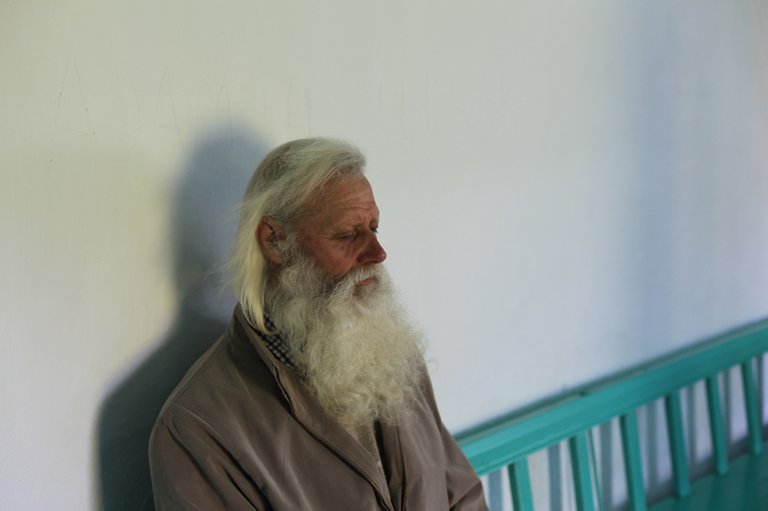
Nikolay Sukhorukov was born in Gorelovka, left for Ukraine and then returned back to Georgia to rebuild his old house and start a new life
The Dukhobors in Javakheti still have agricultural cooperatives, but now it is no longer possible to operate it effectively because there are no workers left. Most of Doukhobors left Georgia, there are no more than 200 Doukhobors left in Javakheti.
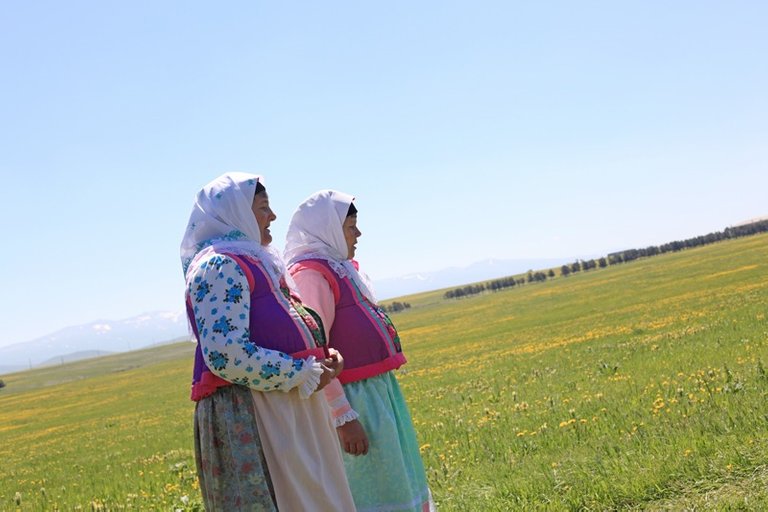
The Georgian Doukhobors faced real economic prosperity after the Sovietization of Georgia, mainly because collective farming was organic to them and they had a long experience of managing the property collectively.
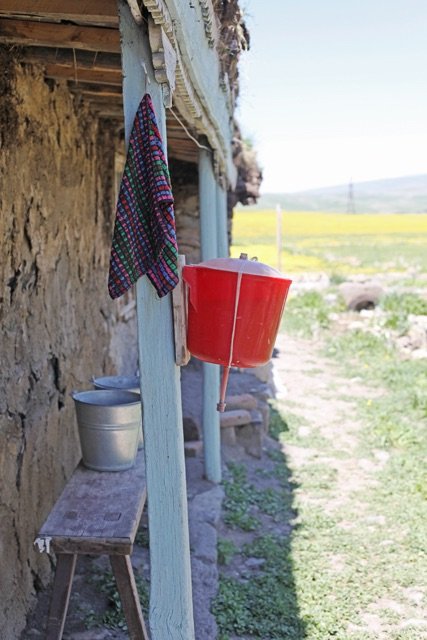
Nikolay's house which was left abandoned, while he lived in Ukraine, before renovation
The Dukhobors in Javakheti still have agricultural cooperatives, but now it is no longer possible to operate it effectively because there are no workers left. Most of Doukhobors left Georgia, there are no more than 200 Doukhobors left in Javakheti.
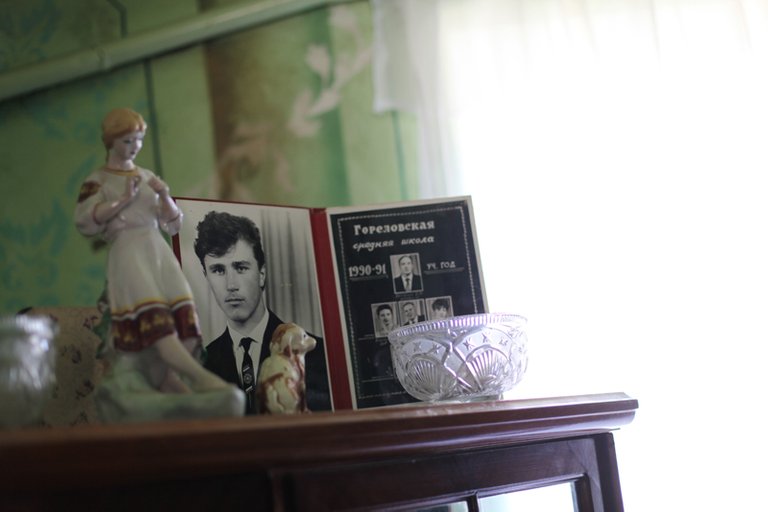
Interior detail at one of the houses
The mass departure of the Dukhobors to Russia began in the early 1990s, many decided to leave under Russia’s program for the return of repatriates.
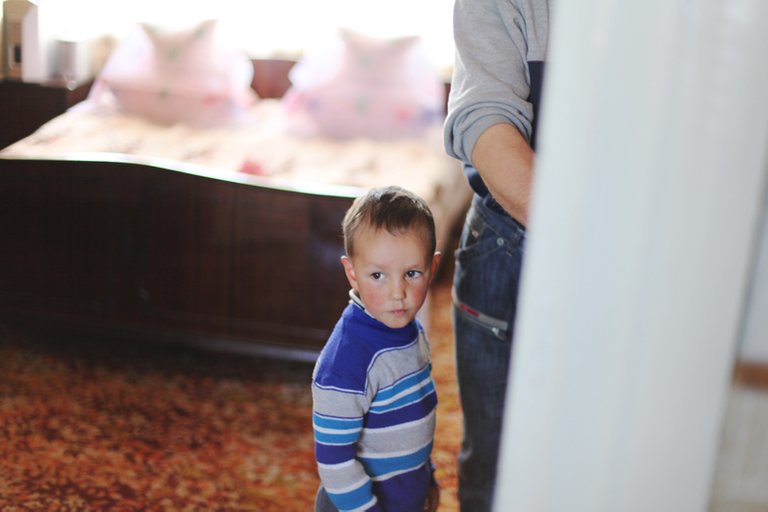
Now two Dukhobor villages, Gorelovka and Orlovka, remain in Javakheti. These are typical Russian names, very unusual for the south of Georgia, a significant part of which is inhabited by ethnic Armenians and Georgians.
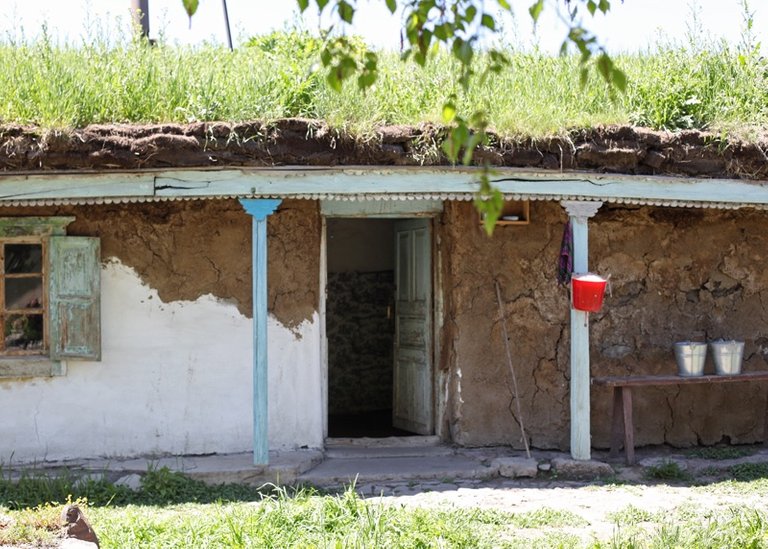
Nikolay's house before renovation
It is also very unusual to hear pure Russian speech – without Georgian or Armenian accents. The Dukhobors speak a strange dialect of the Russian language, which I define for myself as “southern”. When speaking, they do not use neologisms or slang at all, and this is also very unusual and feels like their language was preserved at a time when their ancestors were forced to move to the Georgian mountains.
Orlovka and especially Gorelovka are considered sacred places for the Dukhobor community. Gorelovka is sometimes called the Mecca of the Doukhobors. Some members of the community have told me that they have no doubt that the commune will be reborn. The Doukhobors remaining in Georgia believe that the revival will be global and will cover all countries and all confessions, but it will begin precisely from Gorelovka and precisely from the return of all the Dukhobors who left these places.
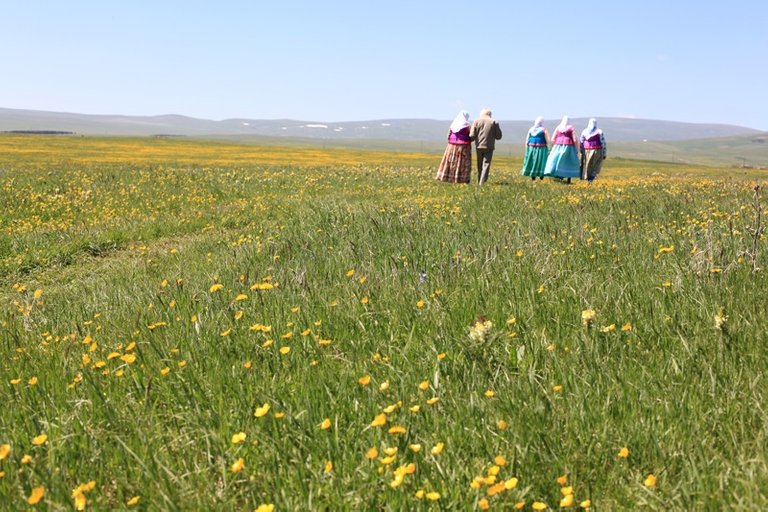
Thanks of reading this story! If you liked it, you might also like to watch this documentary I contributed to (it has English subtitles):
As a special thanks to everyone who read the entire piece, I am sharing my behind the scenes portrait 😁 This is the only photo in this post that was made not by me (It was my friend and colleague Maka Tsnobiladze who photographed me).
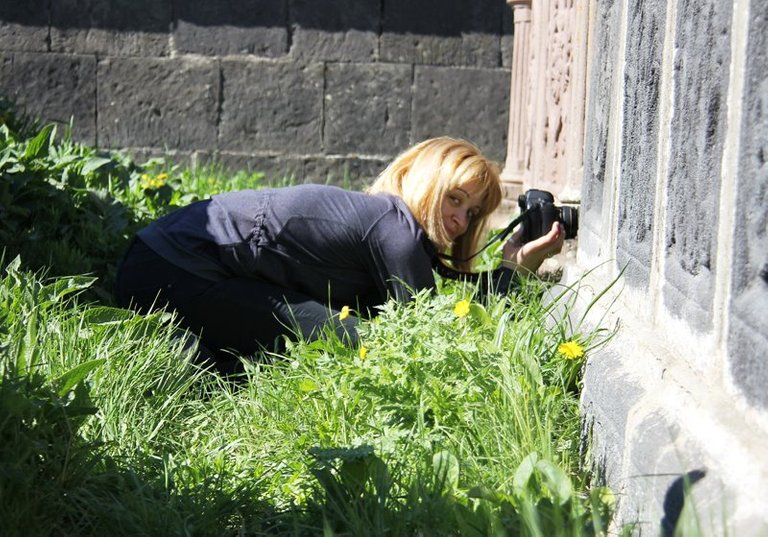
You were lucky to see this community from inside (as far as it's possible for a stranger). Great story and images.
they have no doubt that the commune will be reborn - it's possible. If the community abroad survives, some of them can return when distances mean less. Remote jobs get more common, flights get cheaper, Georgia gets better infrastructure, living in the harsh climate gets easier thanks to new technologies. If the community is open to technologies (despite the traditional ways of living), it's possible one day. Cheaper costs of living in Georgia (than in Canada, for example) and returning to their historical place can be reasons.
Thanks! Yes, I did feel lucky to gain their trust ❤️
I hope at least some of them could return, but unfortunately, many houses of those who left were damaged or even destroyed(
This was an awesome post and some extremely well done photography! Each shot tells it's own story and i love it. Fascinating history of the area as well. Thanks for sharing!
Thank you, I am so glad you liked it. It is a beautiful place, I will share more photos from that area later
The rewards earned on this comment will go directly to the people( @x-rain ) sharing the post on Twitter as long as they are registered with @poshtoken. Sign up at https://hiveposh.com.
Congratulations @shupaka! You have completed the following achievement on the Hive blockchain And have been rewarded with New badge(s)
Your next target is to reach 100 upvotes.
Your next target is to reach 800 upvotes.
Your next payout target is 250 HP.
The unit is Hive Power equivalent because post and comment rewards can be split into HP and HBD
You can view your badges on your board and compare yourself to others in the Ranking
If you no longer want to receive notifications, reply to this comment with the word
STOPCheck out the last post from @hivebuzz:
Support the HiveBuzz project. Vote for our proposal!
Congratulations, your post has been added to Pinmapple! 🎉🥳🍍
Did you know you have your own profile map?
And every post has their own map too!
Want to have your post on the map too?